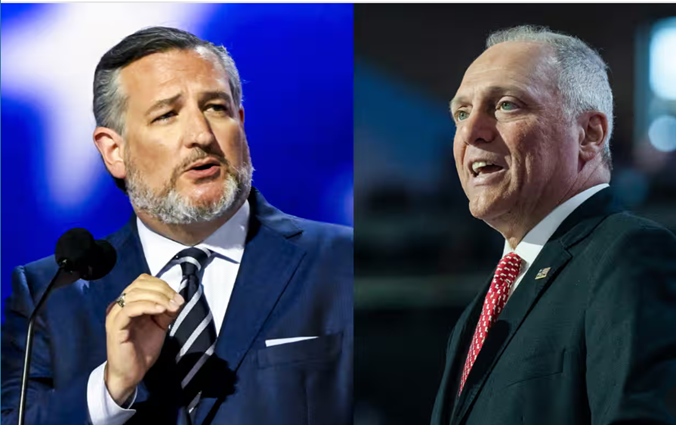
Nearly a Quarter of US Congress Denies Climate Change, All Republicans
US Congress an Outlier
Nearly one in four members of the US Congress deny the reality of climate change, making the US an outlier on the global stage. This group consists entirely of Republicans, with 23 senators and 100 House representatives rejecting the science of human-caused climate change, according to a recent analysis.
Concerning Trends
Kat So, campaign manager for energy and environment campaigns at the Center for American Progress, expressed concern over these findings. The report defines climate deniers as those who dismiss the reality of the climate crisis, its human causation, the settled nature of climate science, or the link between extreme weather and global warming.
Examples of Denial
Prominent examples of denial include statements from Texas Senator Ted Cruz and Louisiana Representative Steve Scalise. Cruz has dismissed climate change as a natural phenomenon, while Scalise has referenced debunked research to argue against the existence of human-caused global warming.
Fossil Fuel Funding
Climate-denying lawmakers have received a combined $52 million in lifetime campaign donations from the fossil fuel industry. This financial backing has likely contributed to their positions and continued rhetoric against climate action.
Public Opinion vs. Representation
The American public is increasingly concerned about climate change, with fewer than one in five rejecting climate science. Long-running polls by Yale University indicate that only 11% of Americans are dismissive of climate change. In contrast, 23% of Congress holds denialist views, highlighting a disproportionate representation of climate deniers.
Shifting Public Perception
Anthony Leiserowitz of Yale notes a significant shift in public perception, with the number of Americans alarmed by climate change now outnumbering those dismissive by three to one. This growing concern is driven by a series of extreme weather events and record-breaking temperatures.
Declining Denial in Congress
While the proportion of climate-denying lawmakers has decreased from 150 five years ago, many who accept climate science still use anti-climate rhetoric. For example, Florida Representative Mario Diaz-Balart, previously a climate denier, now describes climate change as a "religion," yet continues to oppose climate aid.
Persistent Obstruction
Naomi Oreskes of Harvard University points out that while traditional climate denial is declining, other forms of anti-climate rhetoric remain harmful. The fossil fuel industry continues to use various messages to undermine climate action, from questioning the reliability of renewable energy to spreading misinformation about environmental impacts.
Exaggerated Influence
Leiserowitz emphasizes that the minority of vocal climate deniers in the US have an outsized influence on politics and society. This vocal minority discourages broader discussion on climate change, creating a culture of silence on the issue.
Political Polarization
The entrenched political polarization and the influence of fossil fuel donations have contributed to this imbalance in representation. Safe congressional seats encourage candidates to adopt more extreme views, further entrenching climate denial in US politics.